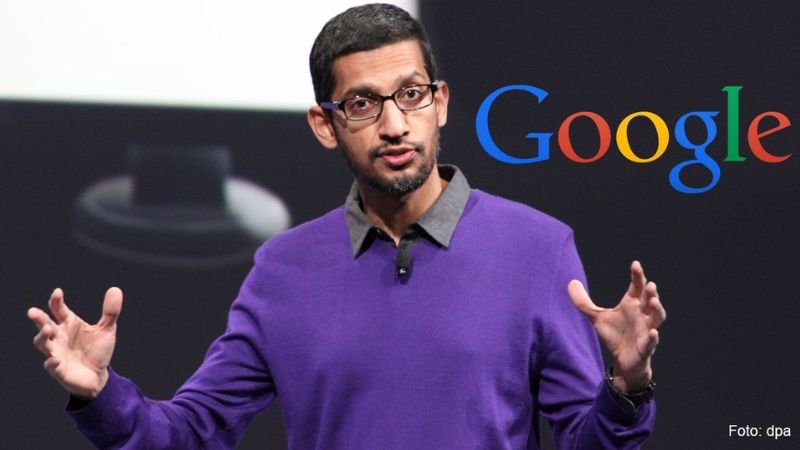Net Worth of Sundar Pichai: Google and Alphabet’s CEO and His Journey
For TheCconnects Magazine, targeted at entrepreneurs, business leaders and C-suite professionals, we present an in-depth, strategic profile of Sundar Pichai’s net worth, his career trajectory from Chennai to Mountain View, the wealth-creation mechanics behind his fortune, and the broader leadership lessons his journey offers.

1. From Humble Beginnings to Global Platform Leadership
Sundar Pichai was born in June 1972 in Chennai (then Madras), Tamil Nadu, India, into a modest family. His early life was marked by limited resources: his family lived in a two-room apartment, and they got their first landline only when he was 12. He earned a degree in metallurgical engineering from the Indian Institute of Technology Kharagpur, followed by an MS at Stanford University and an MBA from the Wharton School of the University of Pennsylvania.
In 2004 he joined Google LLC, then a rising technology company. He played key roles in developing Google Chrome, Chrome OS and later the Android product line. In August 2015 the company reorganised under its holding entity Alphabet Inc. and Pichai became CEO of Google; in December 2019 he was named CEO of Alphabet as well.
Pichai’s career arc is especially relevant to business leaders: he is not a founder-entrepreneur, yet rose through product leadership to sit atop one of the world’s largest companies. His wealth trajectory offers insight into how non-founder executives can nonetheless build significant net worth when paired with strategic business growth.
2. Estimating the Net Worth: How Much and Why It Matters
As of mid-2025, multiple credible sources estimate Sundar Pichai’s net worth at around US $1.1 billion. For example:
- A July 2025 report by Bloomberg (via Indian Today) cited US $1.1 billion.
- The Times of India in August 2025 carried a similar figure (~US $1.1 billion).
- Forbes lists his net worth at US $1.3 billion as of October 2025.
Why is this significant? Because Pichai is relatively unique among major tech CEOs: he did not found Google or Alphabet, and his equity stake is modest compared with founders. For instance, he reportedly holds just ~0.02% of Alphabet equity.
From a corporate-strategy viewpoint: the lesson is that senior leadership in high-growth platforms can translate into meaningful personal wealth-but the magnitude remains heavily dependent on underlying business performance, share grants and stock-market valuations.
3. Components of Wealth: Salary, Stock, Asset Base
a) Compensation & stock awards
Pichai’s wealth is derived largely from stock grants and awards rather than a large salary. For example, earlier in his career his total remuneration in one year reached ~US $226 million (including stock awards) underlining how growth-linked equity is a key driver.
b) Stock-holding and vesting
Even with a small percentage ownership, the total dollar value rose sharply as Alphabet’s market cap surged. His personal stake and stock awards matured as Alphabet’s share price rose markedly from 2023 onward.
c) Asset holdings & stock sales
Reports indicate that Pichai has sold significant quantities of Alphabet shares-over US $650 million worth over the past decade-which, had they been held, might have been worth much more given share price appreciation. Also, his holdings (as per GuruFocus) show 520,668 GOOG shares valued at ~US $132 million as one example.
d) The underlying business driver: Alphabet/Google performance
Pichai’s fortunes move hand-in-glove with Alphabet’s growth. The company added over US $1 trillion in market value since early 2023, delivering investor returns of ~120 %.
For business readers: this underlines the interplay of leadership, product innovation (Chrome, Android, Cloud, AI), and shareholder returns-in turn driving personal net worth for senior executives.
4. Strategic Leadership & Business Growth Under Pichai
Under Pichai’s leadership, Alphabet and Google have shifted majorly toward:
- Mobile and cloud platforms (Android, Google Cloud)
- Artificial intelligence (AI) and machine learning first strategies, with heavy investments in data-centres, infrastructure, and acquisitions.
- Hardware and ecosystem play (Pixel phones, Nest devices)
- Balanced growth in advertising, cloud computing-services, YouTube and enterprise platforms
For C-suite and executive audiences: the takeaways include how Pichai has managed transitions from product-growth phases into scale-business phases, navigated regulatory headwinds, global markets and innovation cycles, and still linked his personal compensation to long-term business value.
5. Risks, Challenges and Future Outlook
Risks and factors to watch:
- As a non-founder, Pichai’s stock-based wealth is sensitive to company performance and broader market valuations.
- Alphabet faces regulatory and antitrust scrutiny globally (search practices, data-privacy, competition) which could impact future valuations.
- Leadership must continue to deliver growth in newer areas (AI, cloud, hardware) as legacy advertising revenues mature.
- The modest shareholding means high dependency on future stock grants and business momentum.
Outlook:
Should Alphabet continue to execute successfully-for example, in AI-driven growth, cloud expansion, YouTube monetisation-Pichai’s net worth has clear upside. Conversely, slower growth or regulatory setbacks could temper wealth growth.
For business leaders: it’s a reminder that even at the highest executive levels, wealth creation is not guaranteed-scaling, execution, innovation and external environment all matter.
6. Key Lessons for Entrepreneurs and C-Suite Professionals
From Sundar Pichai’s journey, the following strategic lessons emerge:
- Climb via value-creation: Pichai rose through product roles to leadership by delivering high-impact outcomes (Chrome, Android). For entrepreneurs: value creation is the ladder.
- Long-term alignment: His compensation and net worth reflect long-term equity rather than short-term salary. For corporate leaders: align incentives with sustainable business growth.
- Leverage platform scale: Google is a platform business; Pichai moved to lead platform expansion rather than linear product increments. For business builders: think platform and network effects.
- Adaptation & reinvention: Under Pichai, Google shifted emphasis from search to mobile, cloud and AI-demonstrating the need for strategic pivot.
- Wealth from giant organisations: Non-founder executives can build meaningful wealth-but often via scale and stock appreciation rather than majority ownership.
7. Why This Profile Matters for TheCconnects Audience
As an analyst-oriented publishing platform, TheCconnects serves decision-makers, entrepreneurs and corporate strategists. The net worth and leadership profile of Sundar Pichai is not merely a celebrity-valuation story-it is a blueprint of executive value creation, strategic business evolution and personal wealth linked to high-performance organisations. This article offers your readers:
- Insights into how leadership in large-scale tech enterprises translates into personal value.
- Considerations for compensation design, net-worth creation and executive incentives.
- A case study of global-Indian leadership-from Indian academic roots to global corporate helm.
- Strategic mapping of how business transformations (mobile→cloud→AI) drive value for stakeholders and leaders alike.
Closing Summary
In summary: Sundar Pichai’s estimated net worth of ~US $1.1 billion (2025) reflects a journey from Indian-engineering student to CEO of Google and Alphabet. His wealth is built on stock grants and company value creation, not on founder-ownership. For entrepreneurs and senior executives, his story offers lessons in alignment, scaling, strategic pivots and leadership in platform businesses.
If you are interested in featuring this story or submitting a guest post to TheCconnects Magazine, our editorial team is ready to collaborate.
📧 Email: contact@thecconnects.com
📞 Call us: +91 91331 10730
📲 WhatsApp: Click here to chat on WhatsApp https://wa.me/919133110730
TheCconnects – Empowering insights | Thought-leadership for business visionaries



